Rahul Gandhi’s Snub: A Dangerous Disregard for India’s Constitutional Pillars Sparks Outrage
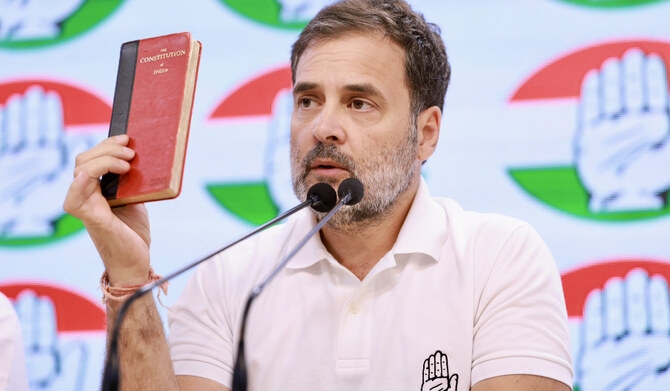
In a stunning display of apparent disdain for India’s constitutional institutions, Congress leader and Leader of the Opposition Rahul Gandhi has once again absented himself from a key national event, this time the swearing-in ceremony of C.P. Radhakrishnan as the 15th Vice-President of India at Rashtrapati Bhavan earlier today.
This follows his earlier boycott of the Independence Day celebrations at Red Fort on August 15, a move that has left the nation reeling. Sources within the security establishment confirm that Gandhi left for an unannounced foreign trip, ignoring a formal notice from the security department, raising serious questions about his commitment to the democratic ethos and the sanctity of constitutional offices.
As India grapples with this provocative act, allegations are swirling that Gandhi’s behavior undermines the very framework of the Constitution, potentially inciting a crisis of faith in the nation’s highest offices and provoking citizens to question the integrity of their elected representatives.
The absence of Rahul Gandhi from the vice-presidential oath-taking ceremony, administered by President Droupadi Murmu at 10:10 AM, has ignited a firestorm of criticism across political and public spheres. Radhakrishnan, a seasoned politician and former Governor of Maharashtra, secured a decisive victory in the vice-presidential election held on Tuesday, defeating the opposition’s candidate Justice B. Sudershan Reddy by a margin of 152 votes - 452 to 300, with 15 votes declared invalid, as announced by Rajya Sabha General Secretary P.C. Mody.
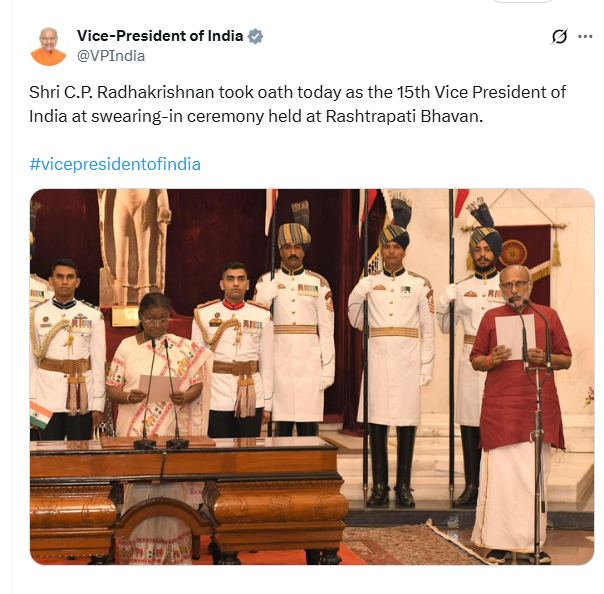
The event was attended by a galaxy of dignitaries, including Prime Minister Narendra Modi, Union Ministers Amit Shah and Rajnath Singh, and former Vice-President Jagdeep Dhankhar, underscoring its significance. Yet, Gandhi’s no-show, reportedly due to his Gujarat tour, has been interpreted by many as a deliberate snub to the constitutional process, especially given his role as the Leader of the Opposition, a position enshrined under the Salary and Allowances of Leaders of Opposition in Parliament Act, 1977. This statutory role demands a certain decorum and presence, which Gandhi appears to have flouted with impunity.
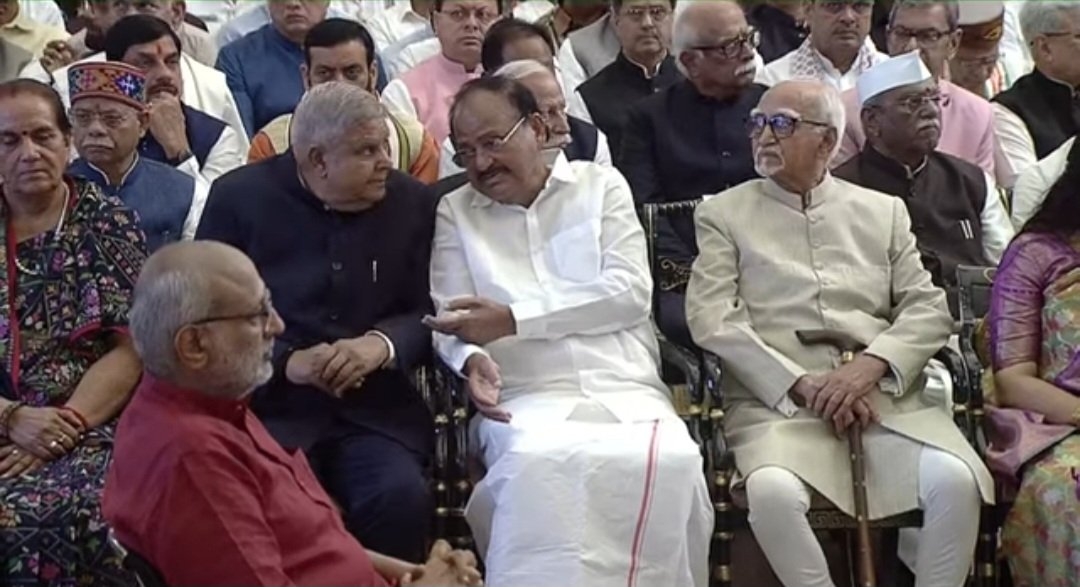
The timing of Gandhi’s absence could not be more contentious. The vice-presidential election came in the wake of Jagdeep Dhankhar’s sudden resignation on July 21 due to health concerns, leaving the office vacant and necessitating a swift transition. Radhakrishnan’s elevation, marked by his resignation as Maharashtra Governor and the appointment of Gujarat Governor Acharya Devvrat as interim replacement, was a moment of national importance.
For Gandhi, as the parliamentary face of the opposition, his presence would have signaled unity and respect for the democratic mandate, especially after the National Democratic Alliance (NDA) demonstrated its electoral muscle with 452 first-preference votes. Instead, his decision to prioritize a regional engagement over a constitutional milestone has fueled accusations that he is more interested in political posturing than in upholding the nation’s institutional integrity.
Critics argue that this pattern, evident also in his Red Fort boycott, suggests a calculated attempt to delegitimize constitutional bodies, a charge that, if true, could have seismic implications for India’s governance.
Adding fuel to the fire, reports from the security establishment reveal that Gandhi was informed a day prior of the need to coordinate his movements, a standard protocol for a figure of his stature. His unannounced departure, allegedly to an undisclosed foreign destination, has led to wild speculation and outrage on social media platforms like X.
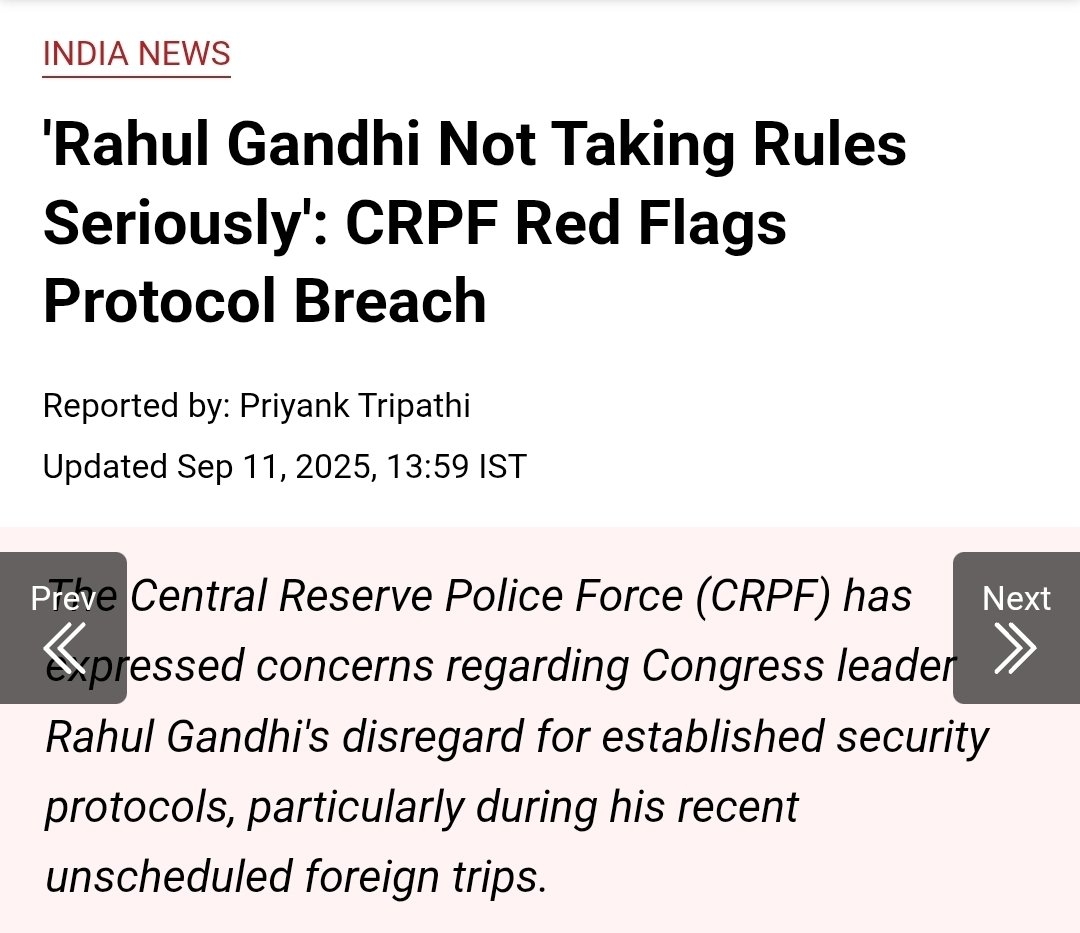
Users have branded him a “part-time politician” and accused him of treating constitutional duties with contempt. One prominent post by Omkar Chaudhary, a vocal commentator, lambasted Gandhi for “openly violating protocol” and demanded his resignation from the Leader of the Opposition post, arguing that his actions send a “very wrong message” to the nation.
This is not the first time Gandhi has courted controversy over his engagement with national institutions. His absence from the Red Fort on Independence Day, a symbol of India’s sovereignty, drew similar ire, with some labeling it a betrayal of the sacrifices that birthed the nation.
The vice-presidential snub, however, carries added weight due to the office’s role as the second-highest in the land and the head of the Rajya Sabha. The Constitution of India, under Article 63, establishes the Vice-President as a critical link in the chain of succession and a guardian of legislative balance.
By staying away, Gandhi has, wittingly or not, cast a shadow over this office’s legitimacy at a time when Radhakrishnan’s appointment was meant to stabilize the political landscape post-Dhankhar’s exit. Sources close to the government hint at an investigation into whether this pattern constitutes a breach of his constitutional obligations, a move that could escalate tensions between the ruling coalition and the opposition.
The implications of Gandhi’s actions extend beyond mere protocol. As Leader of the Opposition, he is not just a parliamentarian but a statutory figure tasked with holding the government accountable while respecting the democratic process. His party, the Indian National Congress, secured only 99 seats in the 2024 Lok Sabha elections compared to the NDA’s 293, a result that already weakened his political clout. Yet, his refusal to engage with constitutional ceremonies suggests a deeper malaise, an apparent rejection of the institutions that define India’s republican identity.
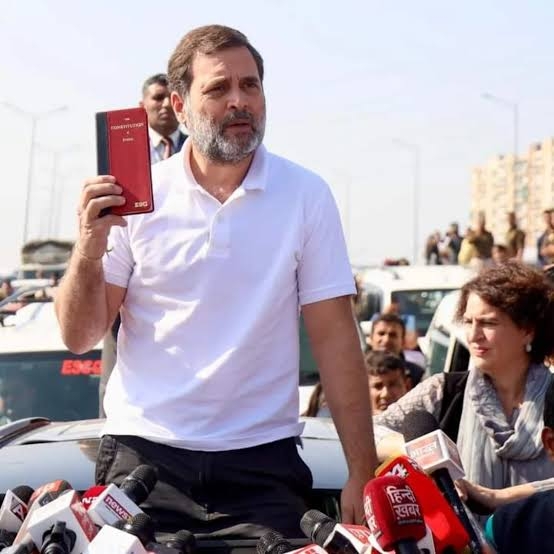
More alarmingly, Gandhi’s absence has opened the door to baseless allegations that threaten to tarnish the reputation of constitutional bodies. On X, users accused him of being a “traitor driven by a lust for power,” while some suggested that his actions align with “anti-national elements.”
The Congress party has remained conspicuously silent on the issue, with no official statement addressing Gandhi’s absence as of this report’s filing. This reticence only deepens the mystery surrounding his intentions. Is this a strategic move to distance himself from a government-backed event, or a sign of internal discord within the party? Whatever the motive, the lack of transparency from Gandhi and his party has left a vacuum filled by conjecture and outrage.
India’s citizens deserve better than this. The Constitution, drafted with painstaking care by the likes of Dr. B.R. Ambedkar, is not a document to be trifled with for political gain. Gandhi’s role as Leader of the Opposition carries with it a moral and legal duty to uphold its principles, not to undermine them through selective participation.
His absence today, coupled with his earlier Red Fort boycott, paints a picture of a leader who prioritizes personal agendas over national unity. This is not just a failure of leadership; it is a betrayal of the trust placed in him by millions who voted for the opposition in 2024, hoping for a robust check on power rather than a hollow gesture.
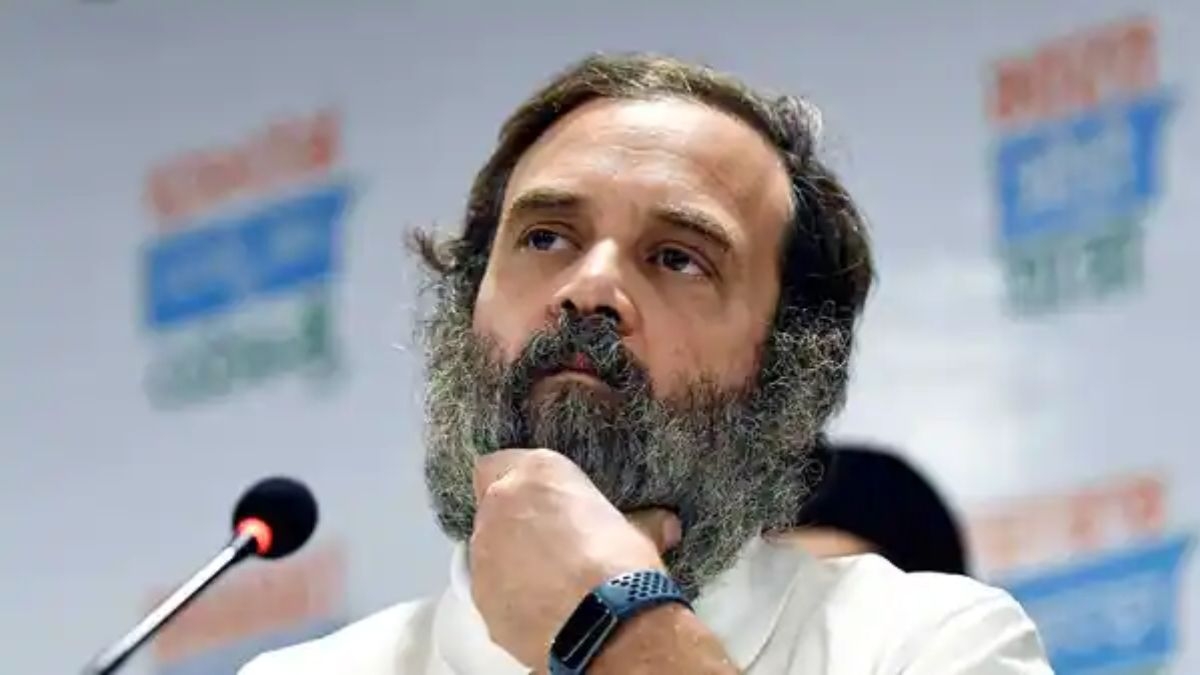
As the nation digests this latest controversy, the onus is on Gandhi to clarify his stance. Will he apologize and recommit to his constitutional responsibilities, or will he double down, further alienating an already skeptical public? The government, too, must tread carefully, ensuring that any response, be it an inquiry or a political counterattack, does not itself erode the institutions Gandhi’s actions have called into question.
For now, the silence from 10 Janpath is deafening, and the streets of India are buzzing with anger. From Delhi’s power corridors to the villages of Gujarat, people are asking: if the Leader of the Opposition cannot respect the Constitution, who will? The answer, it seems, lies in the hands of a man who has, for now, chosen absence over action, a choice that may haunt Indian democracy for years to come.